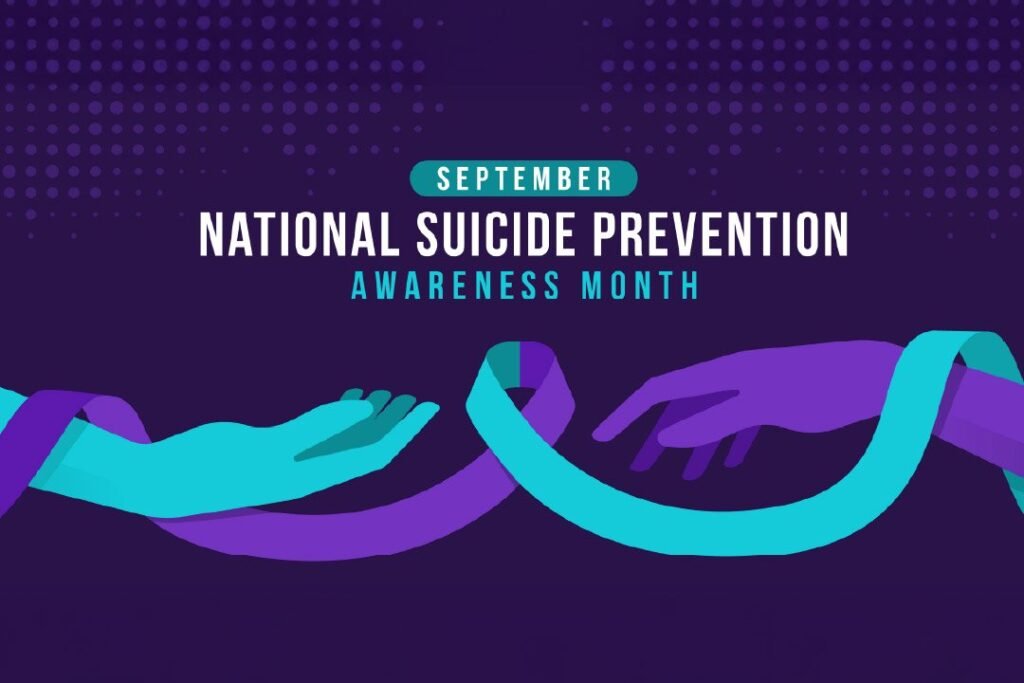September is Suicide Prevention Awareness Month… a time to raise awareness of this stigmatized, and often taboo, topic.
By Jamie Huysman, PsyD, LCSW
Suicidal thoughts – like many mental health conditions – can affect anyone regardless of age, gender or background. In fact, suicide is often the result of an untreated mental health condition. Suicidal thoughts, however common they may be considered, should not be considered normal. These thoughts are often indicative of more serious issues.
We use this month to shift public perception, spread hope and share vital information to people affected by suicide. Our goal is ensuring that individuals, friends, and families have access to the resources they need to discuss suicide prevention – but most importantly – and to seek help.
In my decades of clinical practice and advocacy, I’ve witnessed a troubling paradox. In a world that celebrates individuality and self-expression, many people feel more disconnected than ever – from themselves, from others, and from a sense of purpose. This disconnection, I believe, lies at the heart of a growing mental health crisis – one that manifests in rising suicide rates across demographics. At its core is a profound struggle with authenticity.
Authenticity is not merely a buzzword or a self-help slogan. It is the psychological bedrock of well-being. To live authentically means to align one’s external life with one’s internal truth – to speak, act, and relate from a place of genuine self-awareness and integrity. When this alignment is fractured, the consequences can be devastating.
Suicide is often the tragic culmination of a long-standing internal war. While the causes are multifaceted – ranging from biochemical imbalances to trauma and social isolation – there is a common thread I’ve observed in many cases: a deep sense of alienation from one’s true self. People who feel they must wear masks to be accepted, who suppress their emotions to avoid judgment, or who live according to others’ expectations rather than their own values, are at greater risk of despair.
Research supports this connection. Studies have shown that individuals with high levels of self-concealment – those who habitually hide personal distress or identity – report significantly higher levels of depression, anxiety, and suicidal ideation. Conversely, those who cultivate authenticity through self-reflection, vulnerability, and meaningful relationships tend to experience greater resilience and life satisfaction.
But authenticity is not easy. It requires courage in a culture that often rewards conformity and punishes difference. Social media, for instance, has created a performative landscape where curated personas replace genuine connection. The pressure to appear perfect, successful, or perpetually happy can lead to feelings of inadequacy and shame – emotions that thrive in secrecy and silence.
For LGBTQ+ youth, authenticity can be especially fraught. Coming out, for example, is not just a declaration of identity – it’s a radical act of self-affirmation in the face of potential rejection. Tragically, studies show that LGBTQ+ individuals are at a significantly higher risk of suicide, particularly when they lack supportive environments that honor their authenticity.
So, what can we do?
First, we must create spaces – both personal and societal – where authenticity is safe and celebrated. This means fostering relationships rooted in empathy, listening without judgment, and encouraging honest expression. Mental health professionals must prioritize authenticity in therapeutic settings, helping clients explore their true selves without fear.
Second, we must challenge the stigma surrounding mental health and suicide. Silence breeds shame, and shame is the enemy of authenticity. By speaking openly about our struggles, we not only normalize vulnerability but also offer others permission to do the same.
Finally, we must teach authenticity as a life skill. In schools, workplaces, and families, we should encourage emotional literacy, self-inquiry, and values-based living. When people know who they are – and feel empowered to live accordingly – they are less likely to succumb to hopelessness.
Suicide is not just a personal tragedy; it is a societal failure to nurture the human spirit. If we want to reverse this trend, we must move beyond symptom management and address the deeper existential wounds. We must help people reconnect with their inner truth, and remind them that their authentic self is not only worthy – it is essential.
Now that we are aware, we also have a place to go to transform. It’s called TAR Anon®, STAR Network’s virtual, Polyvagal-inspired, daily accessible program with authenticity being the goal of all trauma recovery. TAR Anon is an international support fellowship designed for STARs, Survivors of Toxic Abusive Relationships (TAR). TAR Anon offers a trauma-informed, neuro-safe environment where individuals can heal from the emotional damage caused by narcissistic and manipulative relationships. If you are ready and want to shed the toxicity in your life, go to TAR Anon and join us. Because in the end, authenticity is not just a path to healing. It is a lifeline.
James D. Huysman, PsyD, LCSW (“Dr. Jamie”) is the Founder and Executive Director of STAR Network Foundation, Inc.







